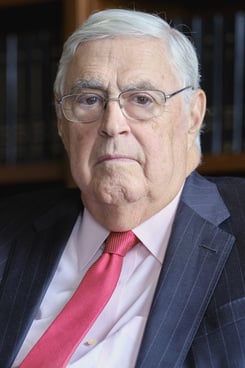
[ad_1]
Greater than 210 traders, unfold throughout almost each continent worldwide, filed a criticism in a New York federal district court docket in opposition to defendants named in an over $440 million cryptocurrency Ponzi scheme that exploited components of conventional multilevel advertising applications.
Chet B. Waldman and Matthew Insley-Pruitt of Wolf Popper and Max Burwick of Burwick Legislation signify the plaintiff traders who sued a number of defendants, together with Guillermo Gharib, the “genius degree dealer” behind the scheme. Burwick famous that many years in the past, a tv host who established belief with viewers was restricted by rules on what the particular person might say.
“Now we reside with these on-line communities with out disclosures or strategies to find out the reality of what persons are saying,” Burwick stated. “If an individual says, ‘I’m an knowledgeable crypto dealer,’ and you’ll see from their pockets that this particular person has made some huge cash, individuals will suppose he is aware of what he’s speaking about. However all these people that know what they’re doing know you’re looking at their wallets, and they’re telling a narrative which may not be the entire reality.”
The defendants didn’t reply to a request for remark.
Marcelo Diaz-Cortes, a associate at Levine Kellogg Lehman Schneider + Grossman in Miami, is an knowledgeable in Ponzi scheme litigation who is just not concerned within the matter. He noticed that whereas crypto Ponzi schemes have elevated within the final 5 to 10 years, the latest differentiating issue is that they’re extra structured and sophisticated.
“The rationale I say that’s the criticism tells an in depth story on how individuals have been duped into investing in numerous methods involving NFTs, tokens and asset administration accounts,” Diaz-Cortes stated. “The best way the crypto Ponzi schemes appear to be evolving is that they seem like much more subtle.”

Now, the case is pending earlier than U.S. District Decide Lewis A. Kaplan, who presides within the Southern District of New York.
The case dates again to the second quarter of 2023 with the launch of TradeAI, an NFT-gated funding platform wherein customers bought particular NFTs to spend money on high-yield funding swimming pools. The NFT that the investor held decided the quantity that they might spend money on the swimming pools, and if an investor needed to take a position more cash, they must buy extra NFTs.
To develop their attain and obtain extra funding funds, TradeAI allegedly conspired with distinguished people within the crypto group, with massive followings on X and Discord, and ran unique communities referred to as “alpha teams,” per the criticism. These key opinion leaders management entry to their alpha group with membership passes within the type of NFTs.
Alpha group members have been primarily paying for entry to the recommendation and alternatives supplied by the important thing opinion leaders, who, with their collaboration with TradeAI and recruitment of tons of of traders, enabled a construction resembling a multilevel advertising scheme, per the criticism. And the defendants promised that Gharib would ship them unparalleled returns—as excessive as 25% in seven days—with little danger.

The operation flourished till TradeAI abruptly collapsed, locking the plaintiffs’ investments within the TradeAI accounts. After failing to make funds to traders, the operators of TradeAI rapidly pivoted, launching a brand new funding car known as StakX that extended the scheme whereas giving the looks of innovation. Nevertheless, inside months, StakX stopped functioning.
Burwick stated that an web sleuth tipped them off to the scheme and {that a} evaluate of the accounts revealed that Gharib, the “genius degree dealer,” misplaced greater than $4 million by means of buying and selling losses and transaction charges. The one method funds and income have been remitted to traders was by receiving new cash from subsequent traders, which is a traditional hallmark of a Ponzi scheme.
Burwick pointed to an X put up revealed by one of many plaintiffs, which stated that Gharib allegedly admitted to him that TradeAI and StakX have been Ponzi schemes: “I’ve heard it myself from his mouth to my ears.”
[ad_2]